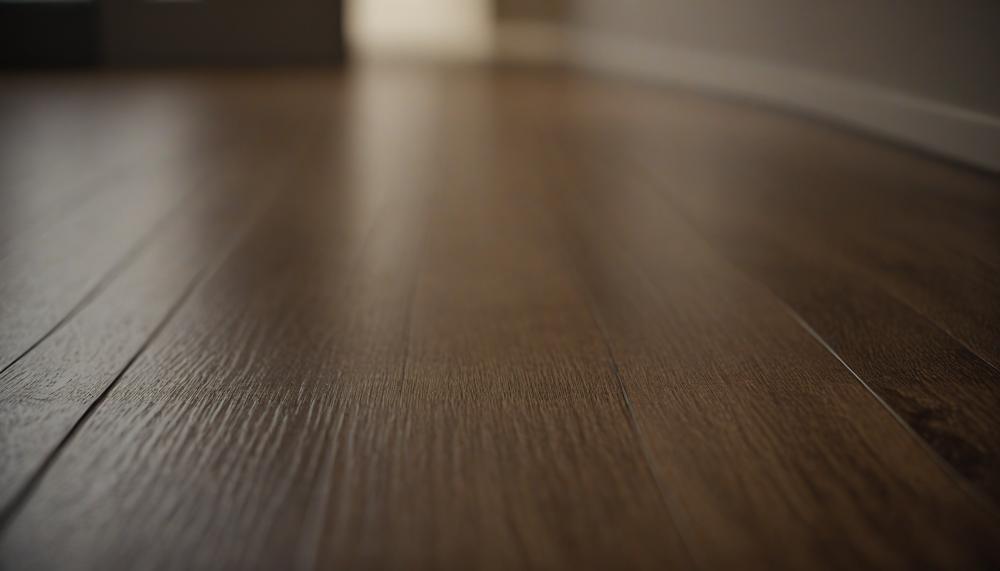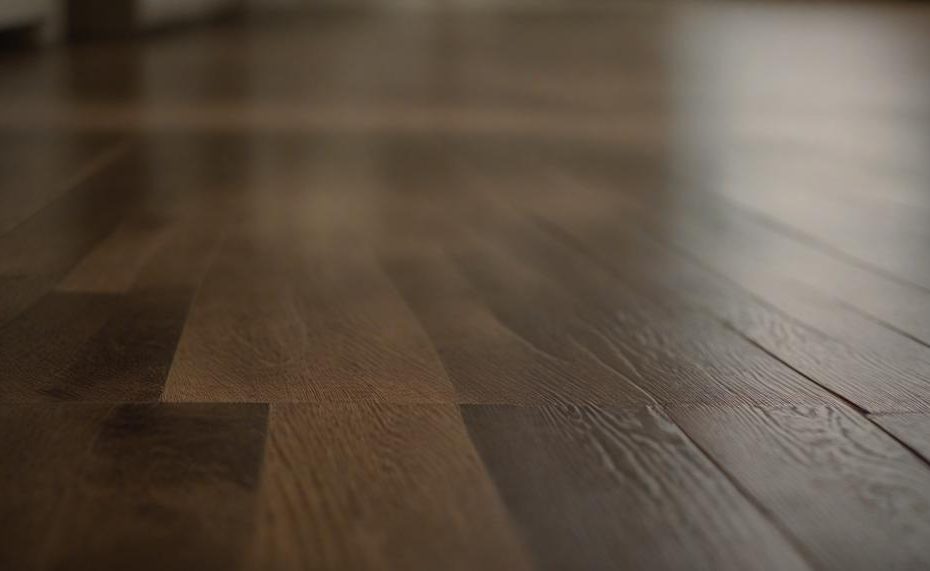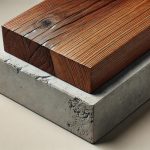No, it’s not always best to glue vinyl flooring. The decision to glue vinyl flooring depends on several factors, including the type of vinyl flooring, the environment where it will be installed, and the specific needs of your project. Here’s why it’s important to weigh your options:
- Project Size and Type: For large commercial areas, gluing vinyl flooring can ensure durability and stability. For smaller home projects, floating or loose-lay methods might be more convenient.
- Adhesive Quality: High-quality adhesives can make the installation process faster and enhance the floor’s durability and appearance. Look for adhesives that are versatile, fast-drying, and resistant to moisture, mold, and alkalis.
- Installation Environment: In moisture-prone areas, using a glue that is moisture- and alkali-resistant can prevent potential damage and prolong the floor’s lifespan.
- Ease of Installation and Repair: Floating or click-lock vinyl floors are easier to install and repair, making them a popular choice for DIY enthusiasts.
- Long-Term Considerations: While glued floors can provide a more permanent solution, they can be more challenging to replace or repair compared to non-glued options.
Understanding these key points can help you make an informed decision about whether or not to glue your vinyl flooring. Each method has its own advantages, so choose the one that best fits your specific needs and preferences.
Table of Contents
Types of Glue for Vinyl Plank Flooring
Choosing the right adhesive for vinyl plank flooring is pivotal for ensuring a long-lasting and durable installation. Here are the primary types of adhesives available, along with their specific advantages and the best use cases:
| Type of Adhesive | Description | Best For |
| Pressure-Sensitive Adhesive (PSA) | PSA is user-friendly and allows repositioning of planks during installation. It activates upon pressure, providing a firm bond once the planks are pressed down. | Residential and commercial settings where ease of installation and repositioning are beneficial. |
| Hard-Set Adhesive | Hard-set adhesives offer a permanent solution with a strong bond that is ideal for high-traffic areas. They are designed to provide long-lasting adhesion. | High-traffic commercial areas where durability and strong bonding are crucial. |
| Epoxy-Based Adhesive | Known for its exceptional strength and resistance to chemicals and moisture, epoxy-based adhesives provide a robust and durable bond. | Areas exposed to heavy wear, moisture, and chemical exposure, such as industrial settings. |
| Urethane Adhesive | Urethane adhesives are flexible and moisture-resistant, offering a durable bond that can withstand moderate movement and environmental changes. | Rooms with moderate to high moisture levels, such as kitchens and bathrooms. |
For a long-lasting and durable installation, the hard-set adhesive is often considered the most suitable choice due to its robust and permanent bond, making it ideal for high-traffic and commercial environments. Its strong adhesion ensures that the vinyl planks remain firmly in place, maintaining the floor’s integrity over time.
However, each type of adhesive has its unique advantages, and the best choice depends on specific project requirements, including the location, expected foot traffic, and exposure to moisture.
Factors to Consider When Choosing Glue
When choosing glue for vinyl flooring, several crucial factors should be considered to ensure a durable and long-lasting installation. Here’s a detailed look at these factors:

| Factor | Explanation | Details |
| Type of Vinyl Flooring | Different adhesives are suited for various forms of vinyl flooring such as sheet, tile, or plank. | Sheet vinyl may require a different adhesive compared to vinyl planks or tiles. For instance, pressure-sensitive adhesives are often preferred for tiles due to their ease of application and adjustability. |
| Room Environment | The room’s moisture levels, temperature, and foot traffic affect adhesive selection. | In moisture-prone areas like bathrooms or kitchens, a moisture-resistant adhesive like acrylic-based adhesive is recommended. For high-traffic areas, a hard-set adhesive provides a stronger bond. |
| Ease of Application | Consider how easy it is to apply the adhesive, especially for DIY installations. | Pressure-sensitive adhesives are user-friendly and allow for repositioning, making them suitable for DIY projects. Learn more. |
| Bond Strength | The adhesive’s ability to hold the vinyl in place firmly over time. | For commercial or high-traffic areas, choose adhesives known for their strong bonding capabilities, such as hard-set adhesives. |
| Resistance to Moisture | Adhesives need to withstand the presence of moisture, especially in certain environments. | Moisture-resistant adhesives prevent the flooring from lifting or warping in damp conditions. Acrylic-based adhesives are particularly effective in these scenarios. More details. |
| Manufacturer’s Recommendations | Always follow the adhesive guidelines provided by the vinyl flooring manufacturer. | Manufacturers test their products extensively and recommend specific adhesives that ensure optimal performance and longevity. Refer to the installation guide or manufacturer’s website for precise recommendations. |
Additionally, maintaining your vinyl flooring involves using the right adhesive tailored to your specific flooring type and environmental conditions. This approach not only enhances the durability of the flooring but also ensures it stays firmly in place, maintaining its aesthetic appeal over time.
Recommended Glue Brands and Products
Top recommended glue brands and products for vinyl flooring include:
| Brand | Product | Description |
|---|---|---|
| Roberts | 2001 Pressure Sensitive Adhesive | A versatile, pressure-sensitive adhesive that stays tacky, allowing for easy adjustments and removals. Ideal for both commercial and residential vinyl installations. |
| Henry | 356C Acrylic Flooring Adhesive | Provides a robust bond and exceptional moisture resistance, making it a preferred choice for vinyl flooring in moisture-prone areas. |
| Loctite | Power Grab All-Purpose Construction Adhesive | An easy-to-apply adhesive with a strong initial tack and reliable bonding strength. Suitable for various vinyl flooring types. |
| Armstrong | S-599 Flooring Adhesive | Specially formulated for Armstrong vinyl flooring, this adhesive offers excellent adhesion and moisture resistance. |
| Mannington | MT-711 Pressure Sensitive Adhesive | Designed for ease of use and strong bonding, ideal for Mannington vinyl products, ensuring long-lasting installations. |
Key Types of Adhesives:
- Pressure-sensitive adhesive: Remains slightly tacky after curing, allowing for easier removal or adjustment. Ideal for those who need flexibility during installation.
- Acrylic-based adhesive: Offers a robust bond and is moisture-resistant, making it suitable for areas prone to moisture.
- Adhesive-backed vinyl options: These come with pre-applied adhesive, simplifying the installation process. Perfect for DIY enthusiasts looking for convenience.
Considerations for Selecting Adhesive:
- Ease of application: User-friendly adhesives can significantly simplify the installation process.
- Bond strength: Ensures the vinyl flooring stays in place, even under heavy traffic.
- Moisture resistance: Essential for installations in areas like bathrooms or basements.
Always adhere to the manufacturer’s guidelines to ensure a durable and successful vinyl flooring installation.
Conclusion
Choosing whether to glue vinyl flooring is a nuanced decision influenced by project specifics, environmental conditions, and desired durability. Here’s a concise breakdown to help you decide the best approach for your installation.
- Project Size and Type: In expansive commercial spaces, gluing vinyl ensures stability and longevity. Conversely, for smaller residential projects, floating or loose-lay methods offer ease and flexibility, ideal for DIY enthusiasts.
- Adhesive Quality: Opting for high-quality adhesives can significantly impact the floor’s performance. Fast-drying, moisture-resistant, and mold-resistant adhesives are essential for high-moisture areas, ensuring a robust and lasting bond.
- Installation Environment: Moisture-prone areas demand adhesives that can withstand damp conditions to prevent damage. High-traffic zones benefit from hard-set adhesives that offer superior bond strength, maintaining floor integrity under constant use.
- Ease of Installation and Repair: Click-lock or floating vinyl floors provide straightforward installation and simpler repair processes. These options are particularly appealing for homeowners seeking a hassle-free experience.
- Long-Term Considerations: While glued vinyl floors offer a permanent solution, they can be challenging to replace or repair. In contrast, non-glued options provide easier maintenance and adaptability over time.
Each installation method has unique advantages. Your choice should align with the specific needs of your project, considering factors like project scope, environmental conditions, and your skill level in handling the installation.






